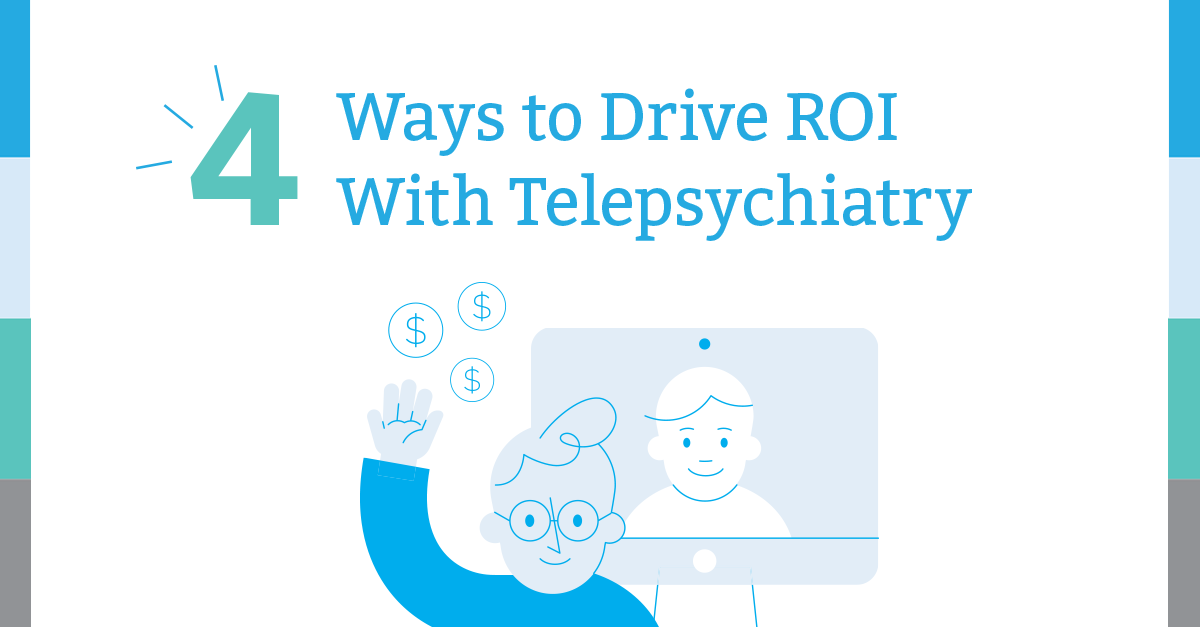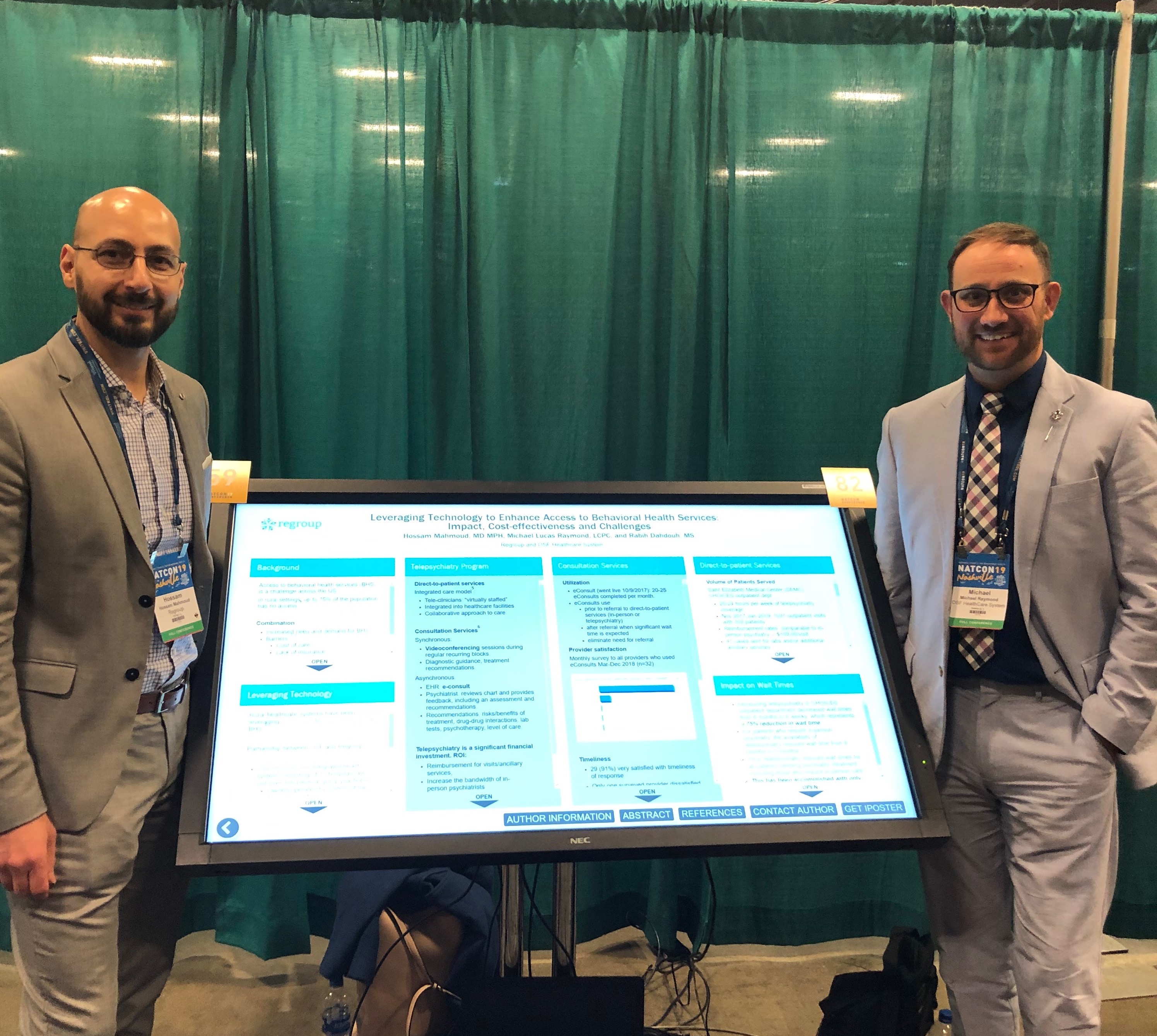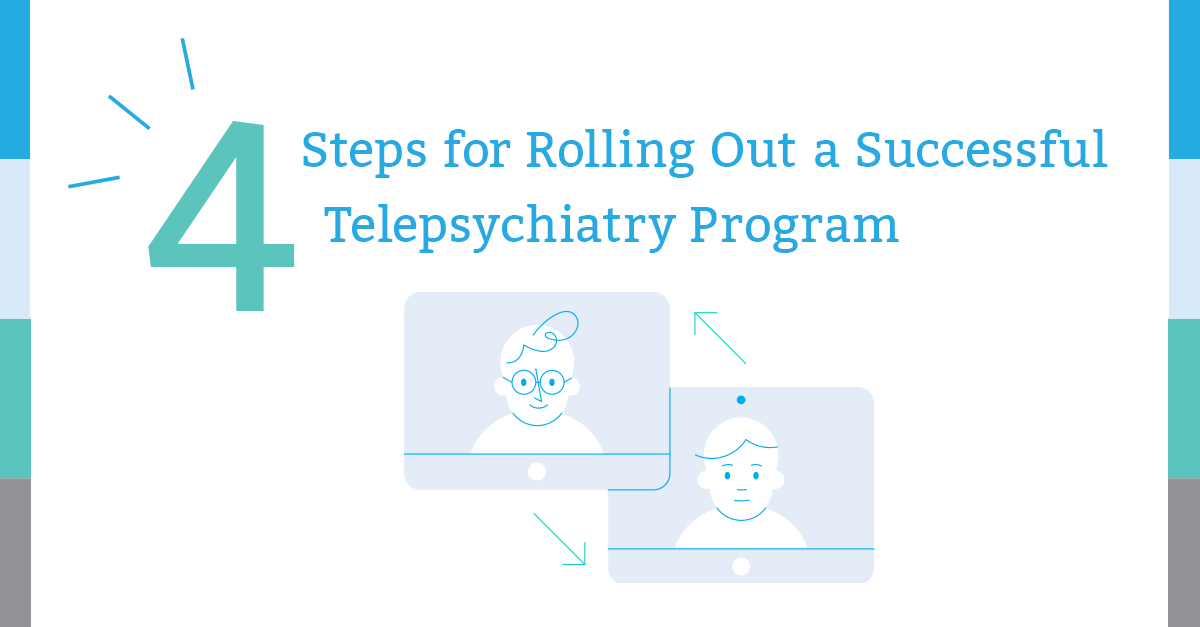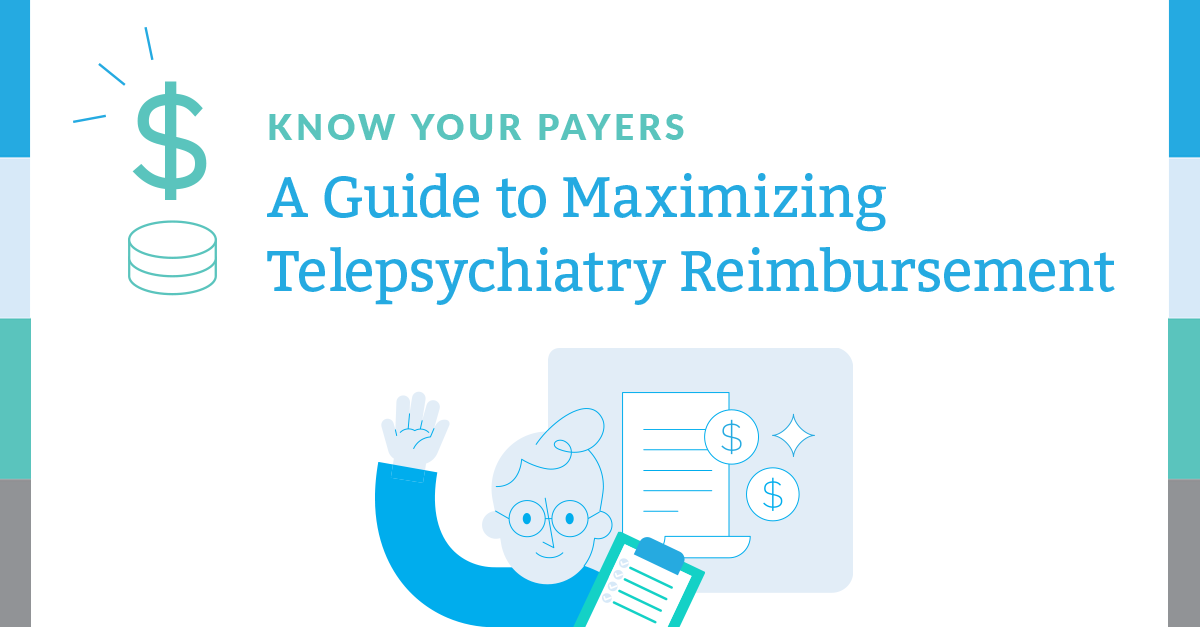From adopting value-based care to addressing clinician shortages, mental health programs across the country are facing a variety of clinical and operational pressures. As digital transformation reshapes healthcare delivery, telepsychiatry is rapidly gaining attention as a way to deliver quality behavioral health services efficiently and effectively. Regroup recently surveyed healthcare leaders about their current and future telepsychiatry plans, revealing how many are leveraging virtual care to meet both patient and organizational needs.
The Latest
Infographic | 2019 Perceptions of Telepsychiatry and Trends
Tags: Regroup Blog, Downloads
According to the National Alliance on Mental Illness, an estimated 46 million Americans deal with mental illness each year, yet only 41% get help for it. Chronic shortages of mental health providers have only added to the problem, prompting many healthcare facilities to look to new ways to deliver care. As more organizations explore telepsychiatry to build on their in-house capabilities, many are finding it can help to boost profitability as well as much-needed care access.
By taking an integrated approach to telepsychiatry, organizations can provide patients with timely access to holistic care while also realizing significant operational and financial benefits. Here’s a closer look at four areas where telepsychiatry can help your facility achieve ROI.
Tags: Downloads
Case Study | Community Mental Health Center & Medicaid Patients
As the primary resource for children and adolescents on Medicaid experiencing a mental health crisis, The Center for Youth & Family Solutions (CYFS) in Bloomington, Illinois, provides critical support to some of the area’s most vulnerable families. For the nonprofit agency, however, finding a financially sustainable way to connect children with high-quality mental health care was an ongoing challenge.
Tags: Regroup Blog, Downloads
Case Study | OSF Healthcare | Using Tech to Enhance Rural Access
Tags: Publications, Downloads
White Paper | Delivering Compliant Care: A Guide to Telepsychiatry Law
"Telepsychiatry programs have been on the rise for the past several years, helping healthcare organizations address chronic psychiatrist shortages, escalating rates of substance abuse and widespread incidence of mental illness across the U.S. By enabling providers to connect with qualified clinicians from anywhere, telepsychiatry is putting mental health care within reach for the first time in many rural and underserved areas. And while these organizations are finding telepsychiatry meets the proverbial triple aim — high-quality care, better overall health outcomes
and lower costs — many are discovering that keeping up with telepsychiatry compliance is a full-time job."
Tags: Downloads
MAT | How Prescribing Suboxone Can Help Solve the Opioid Crisis
Each day, opioids claim the lives of more than 130 people across the U.S. As this national epidemic continues to intensify, access to treatment has remained out of reach for many of the patients who need it most. While medication-assisted treatment (MAT) with medications like Suboxone is a proven method for treating opioid use disorder, there simply aren’t enough qualified providers to meet the need and the demand, particularly in rural and other underserved areas.
As healthcare facilities work to meet skyrocketing demand for MAT, a growing number are turning to telepsychiatry as an effective, cost-efficient solution. With recent changes in the law making it easier to deliver MAT via telepsychiatry, this technology-enabled approach is expanding access and saving lives in communities ravaged by the opioid crisis.
Tags: Regroup Blog, Downloads
White Paper | 4 Steps for a Successful Telepsychiatry Program
"The U.S. is facing a nationwide shortage of psychiatric clinicians, and that shortage is expected to grow to an estimated 15,600 psychiatrists by 2025. At the same time, the growing opioid crisis, economic hardship and other factors mean patients need these services more than ever. Nearly one in five American adults is living with mental illness, which can lead to lower job productivity, physical co-morbidities and increased hospitalization risk if left untreated. It’s little wonder that psychiatrists are now No. 2 on the list of in-demand medical specializations – and telepsychiatry has emerged as an effective method to put more psychiatrists within reach of healthcare facilities."
Tags: Downloads
Case Study | Flexibility helps an FQHC Achieve Telepsych Success
When it comes to delivering behavioral health services, the ideal program looks different at every healthcare organization. For Advantage Health Centers, finding a telepsychiatry partner that understands its unique needs has been the key to success.
Tags: Downloads
Case Study | Correctional Facility Expands Mental Healthcare Access
As the U.S. faces a shortage of mental health providers, accessing clinicians can be especially challenging for correctional facilities. Prisons are often located in remote areas, and many clinicians are intimidated about working on-site. For these facilities, telepsychiatry can help to attract high-quality providers by enabling clinicians to work with patients from anywhere.
Tags: Downloads
White Paper | A Guide to Maximizing Telepsychiatry Reimbursement
Reimbursement varies significantly by state as well as by payer, which means there are no hard and fast rules to help organizations determine if– and how much – they may be reimbursed for telepsychiatry services. While the federal Medicare program guidelines apply across the U.S., Medicaid programs are administered at the state level, which means each state can set its own criteria and telepsychiatry coverage. Each state can also determine whether private payers must offer reimbursement for telemedicine, causing significant variations in payments to clinicians and healthcare facilities.
Tags: Downloads
.png?width=170&height=100&name=Array_rgb%20(1).png)









